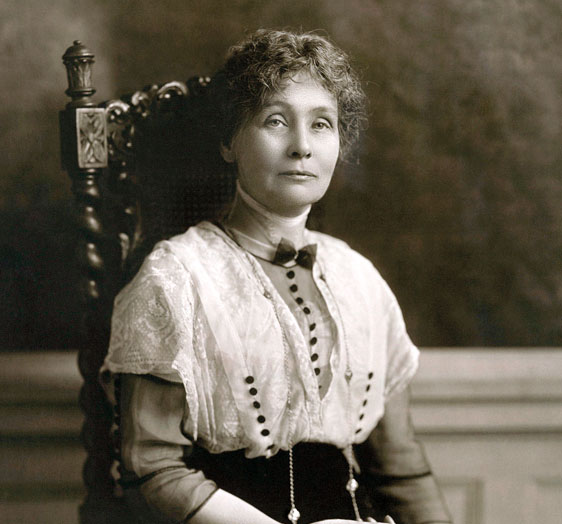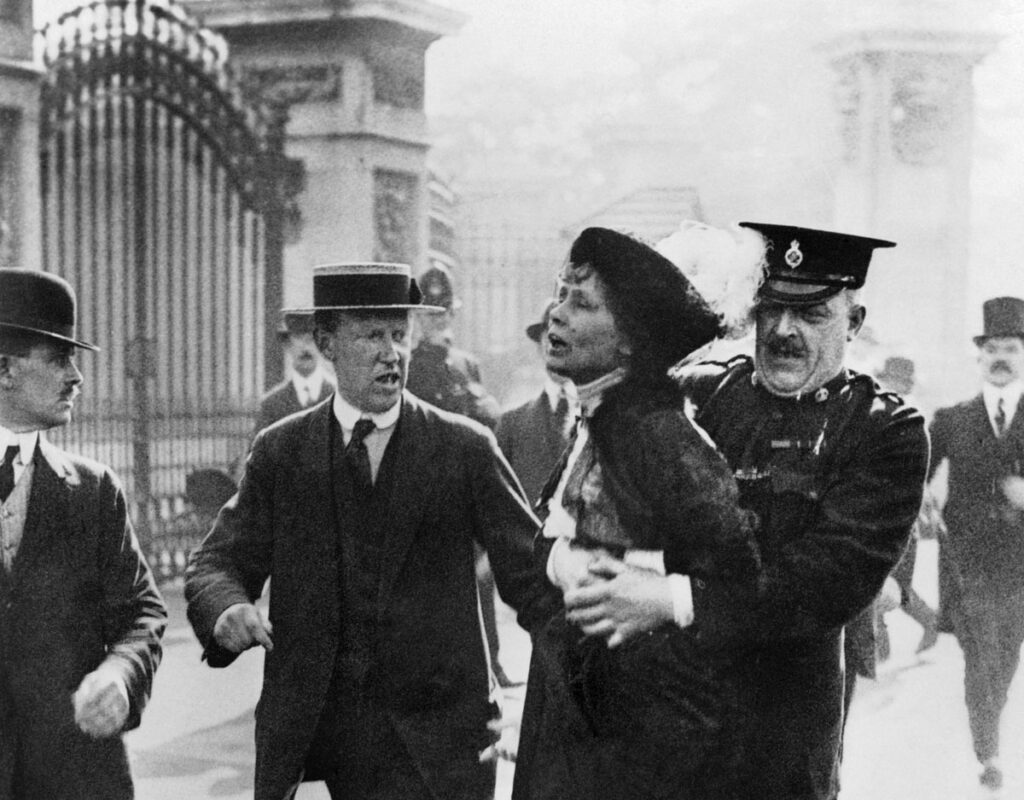Community researcher – Pippa Marriot
Wind and sea helped the police to evade the posse of suffragettes who had planned to prevent the re-arrest of Mrs Emmeline Pankhurst under the provisions of the “cat and mouse act.” A heavy sea was running in Plymouth harbour when the steamship Majestic anchored, shortly after noon. The waves, while they did not affect the powerful police tug, were too much for the little motorboat which the militant suffragettes had engaged to head off the policemen. The occupants, who included ‘General’ Mrs Flora Drummond and other leaders, were drenched to the skin before they reached the liner.
The Majestic, under police orders, had anchored outside the breakwater. The sea delayed the little suffragette war ship so much that it did not arrive at the side of the big liner until the police were leading Mrs Pankhurst down the gangway. The militants shouted to her through their megaphones: ‘Don’t land; the cats are after you!’
Mrs Pankhurst protested against her arrest, and asked to see the warrant. It was explained to her that no warrant was necessary.
At her request, Mrs Child Dorr, an American suffragist, was permitted to accompany her. Six policemen and a wardress boarded the steamer to prevent any of the passengers from interfering with officers delegated to make the actual arrest. In the meantime, the ordinary tender, on which were many suffragettes armed with clubs, was kept standing off and the armed bodyguard was rendered helpless.
Groups of suffragettes were on guard outside at the prisons in the southeast of England to which it was thought Mrs Pankhurst might be taken. Instead, she was lodged in the jail at Exeter.
Mrs Joan Wickham, who was distressed by the turn of events, hoping to the last that Mrs Pankhurst would go free, said: ‘She is in better health than for a long time past. We will have her out of prison in a very few days. Our cause is stronger than ever. She is always glad to sacrifice herself for us. I foresee the day when, in addition to the statue of Sir Francis Drake, Plymouth will erect one to the woman martyrs arrested there because she fought for women and her country.’

